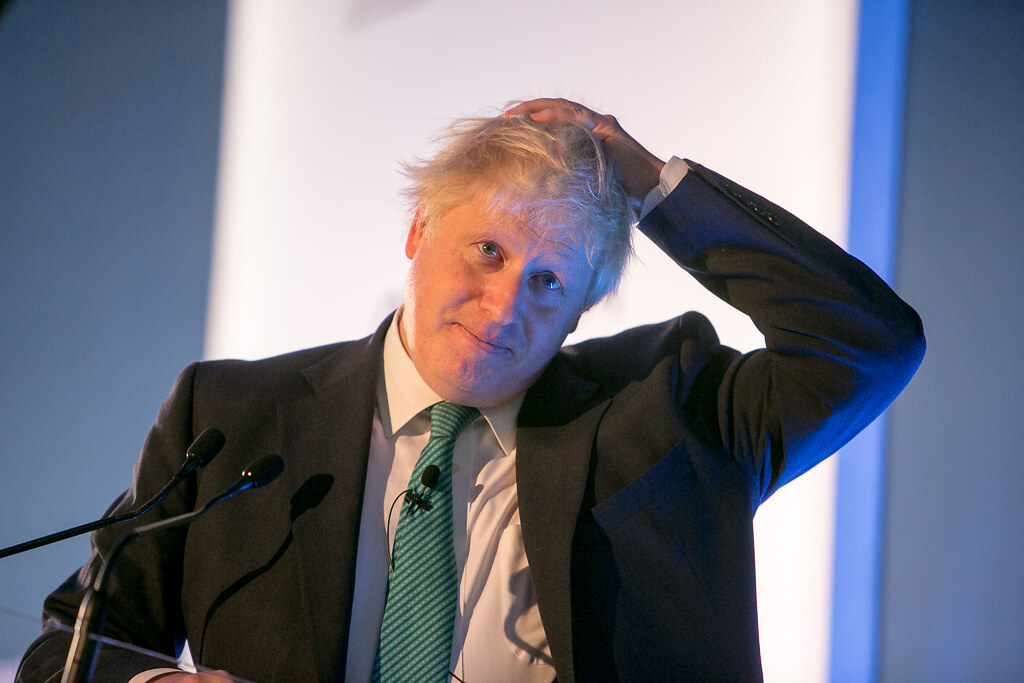Steve Score, Socialist Party national committee
When no less than three former Tory prime ministers line up to attack Johnson’s government, when the Justice Secretary says – while supporting the proposed government legislation – he would resign if it is actually fully implemented, you know it’s a crisis!
Splits in the Tories over the Brexit strategy have burst out into the open again after months of news headlines dominated by Covid. But more than that, Johnson’s brinkmanship has caused panic in the ruling class.
The latest ‘Internal Market Bill’ has passed its first vote in the Commons. 30 Tory MPs abstained, two voting against, and many are threatening to support amendments to take out clauses they see as reneging on the Brexit withdrawal agreement made with the EU, and ‘breaking international law’.
This is against the backdrop of a looming deadline in negotiations between the government and the EU over future trading relationships. The transition period is due to end on 31 December when Britain will be fully out of the EU. But the treaty needs to be agreed before that date in order for it to be implemented by the end of the year.
Johnson has set an early deadline of 15 October, while the EU suggests the end of October. If no agreement is reached, then a chaotic ‘no deal’ Brexit under World Trade Organisation (WTO) terms could result. This is of course in the context of the severe economic crisis triggered by Covid-19.
As part of the withdrawal agreement, a complicated attempted compromise was made to try to square the circle to prevent a potential ‘hard border’ between the North (outside the EU) and South of Ireland (inside the EU). A hard border under capitalism could have devastating political as well as economic consequences.
Under the withdrawal agreement, the North would effectively stay in the EU’s single market and adhere to EU standards on goods, while the rest of the UK would not. But the North would be in the UK’s ‘customs territory’. So goods that travelled from Britain to Northern Ireland that weren’t intended to go to the South would theoretically have no tariffs or different standards (for example on health and safety) imposed on them.
However, negotiations on which goods are to be treated as ‘at risk’ of entering the South from the North are continuing. If these fail, all goods would be seen as ‘at risk’, and potentially the hard border would be in the Irish Sea.
Part of the Internal Market Bill now being debated would allow the government to rip up this part of the agreement. Other aspects of the bill could potentially allow the government to impose lowering of food safety standards (allowing chlorinated chicken for example) on all parts of the UK – increasing the mood for independence in Scotland, for example.
Johnson claims these measures are a “safety net” in case no deal is made with the EU, but there is a huge amount of uncertainty over whether the negotiations will end with agreement. Like previous Tory leaders, he is under pressure from the two wings of his own party as well as the capitalist ruling class. That is what both Labour and Tory former prime ministers’ attacks on him were about.
The majority of the ruling class was opposed to Brexit, but was forced to accept the referendum vote, when millions of working-class people used it to vent their anger against austerity and out-of-touch politicians. The current Labour leadership also reflects this position.
‘Plan B’ was to get a deal that was as near to the EU as possible. For the likes of Tony Blair to talk about the sanctity of ‘international law’ when it suited the US and British ruling class to ignore it over the Iraq war, is utter hypocrisy. However, the ruling class does have real concerns over its reputation in future trade negotiations with other countries.
A number of industry bosses say a no-deal Brexit would devastate jobs. Car manufacturers say it would mean an extra £100 billion in losses over five years, on top of a similar amount resulting from the Covid-triggered economic crisis.
The Socialist Party has always supported a socialist Brexit that would include the nationalisation of all big companies threatening redundancies as part of a democratic socialist economy. We have opposed the bosses’ EU with a genuine socialist internationalism.
Whether it ends up with a negotiated Brexit deal or exit on WTO terms, under the Tories and under capitalism neither will be in the interests of working-class people. It will need a working-class mass movement led by trade union action to defend jobs, living standards and safety standards.









